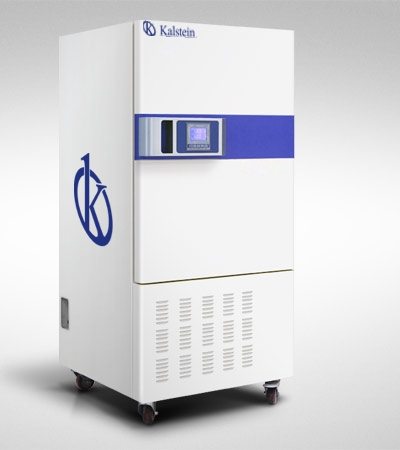When it comes to biochemical incubators, choosing the right equipment is key for precise scientific research. In this article, we will delve into a comprehensive comparison of the Biochemical Incubator 100L-400L YR2039-1 // YR2039-4 from the renowned brand Kalstein, and the Biochemical Incubator MIR-154-PE from PHCbi. Both incubators have been designed with sophisticated features to meet the high demands of biochemical experiments and culturing applications. As we explore their specifications, functionality, and market performance, we aim to provide insights that will guide you in making an informed purchasing decision.
Kalstein’s Biochemical Incubator 100L-400L YR2039-1 // YR2039-4 stands out with its exceptional range of technical features. It offers a capacious interior, advanced temperature control, and consistency, which are crucial for experiments requiring stable conditions. On the other hand, the PHCbi MIR-154-PE boasts a compact design with an intuitive interface aimed at optimizing user experience for smaller-scale applications. This incubator is also recognized for its energy-efficient operation, an essential consideration in today’s eco-conscious market.
| Feature | Biochemical Incubator YR2039-1 // YR2039-4 (Kalstein) | Biochemical Incubator MIR-154-PE (PHCbi) |
|---|---|---|
| Capacity | 100L – 400L | 154 Liters |
| Temperature Range | +5°C to +65°C | +5°C to +60°C |
| Temperature Uniformity | ±0.5°C | ±0.3°C |
| Control | Digital PID Control | Microprocessor Control with LED Display |
How They Work
The Kalstein Biochemical Incubator YR2039-1 // YR2039-4 utilizes advanced digital PID temperature control technology to maintain precise conditions. It automatically adjusts to temperature fluctuations, ensuring a stable internal environment crucial for biological research. The design facilitates easy access for sample inspection and modification of settings.
Conversely, the PHCbi MIR-154-PE operates with microprocessor control and a digital LED display. This incubator ensures accurate temperature maintenance and is well-suited for smaller laboratories with less intensive temperature demands. The design is optimized for efficient energy consumption, aligning with sustainable operational goals.
Purpose
The Biochemical Incubator YR2039-1 // YR2039-4 from Kalstein is designed to serve a multitude of research applications. It is widely used in fields such as microbiology, genetic engineering, and other scientific disciplines requiring controlled environmental conditions. The adjustable capacity (100L to 400L) makes it adaptable for varying sample sizes and research scales, thus enhancing laboratory throughput.
Types
Biochemical incubators vary in terms of capacity, temperature range, and control mechanisms. Kalstein’s incubators offer flexibility in capacity (100L to 400L), making them suitable for researchers who may need different scales of operation. Meanwhile, PHCbi’s offerings focus on compact, energy-efficient designs, catering to smaller research facilities or constrained workspace environments.
Market Price
In the market, biochemical incubators range significantly in price depending on features, brand reputation, and capacity. The Kalstein Biochemical Incubator YR2039-1 // YR2039-4 typically ranges from mid to high-end prices, reflecting its advanced functionalities and versatile capacity. In contrast, the PHCbi MIR-154-PE is often positioned at a competitive price point for buyers prioritizing compact size and energy efficiency. For precise cost and detailed specifications, we encourage exploring options on the Kalstein website and utilizing the automated quotation system available.
Frequently Asked Questions
What is the capacity range for the Kalstein incubator?
It ranges from 100 to 400 liters, offering flexibility for various research needs.
How does Kalstein ensure temperature accuracy?
By employing a Digital PID control system that regulates and stabilizes temperature fluctuations effectively.
Is the PHCbi incubator energy-efficient?
Yes, the MIR-154-PE is known for its optimized energy consumption.
Advantages and Disadvantages
The Kalstein model excels in adaptability and precise temperature control, which is critical for sensitive scientific work. Its variable capacity offers significant versatility. However, the size may be a concern for laboratory spaces with constraints.
The PHCbi MIR-154-PE offers advantageous compactness and cost-effectiveness but may not support larger or more complex research projects due to its limited capacity.
Field Use
The Kalstein Biochemical Incubator is utilized in diverse settings, including universities and biotechnology companies, where controlled precisions are essential. Its spacious design accommodates a broader range of samples, enhancing research capabilities. It is not uncommon to find this incubator improving efficiency in microbiological culturing and various life science applications.
Recommendations
Regular maintenance and calibrations will ensure optimal performance of the Kalstein incubator. Utilizing the integrated digital control features will maximize its benefits. For researchers requiring rapid access to equipment specifications, Kalstein’s online platform provides intuitive solutions, enabling easy engagement with state-of-the-art equipment.
If you’re searching for a fusion of innovation and quality, you’ve come to the right place. At Kalstein, we offer the luxury of exploring our exclusive catalog of laboratory equipment. We manufacture each piece with a level of excellence. Our intuitive and agile online purchasing channels are designed for your convenience, ensuring the most friendly prices. Don’t hesitate any longer; we bring science to life. It’s time to join our community. https://kalstein.de/product/biochemical-incubator-100l-400l-yr2039-1/.

